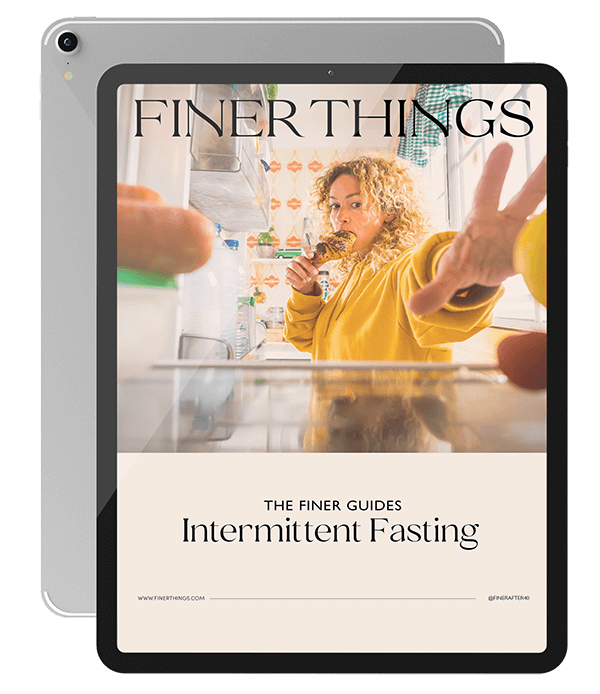How to Say No Over the Holidays

By Franki Hanke
Traditions carry a lot of expectations. While the traditions we repeat every holiday season bring nostalgia and joy, they can be a lot of pressure to continue them unchanged.
Instead of shouldering under what you’ve always done this time of year, create a new holiday routine with healthy boundaries. This way, you’ll have a little more holiday spirit and a little less hiding out in the bathroom.
Take Stock of Existing Expectations
Preferably before you’re on the phone agreeing to it, anticipate the usual expectations for your December. These could be expectations from your family or yourself.
Write a list of what you consider to be part of the holiday season. For example, here are some common ones.
→ Family dinner at Family’s House
→ Christmas Gift Exchange
→ Cooking a Large Dinner on Christmas Eve
→ Sending Out Christmas Cards
→ Wrapping Individual Hanukkah Presents
→ Flying Home for the Holidays
→ Baking Cookies for the Office
→ Decorating the House
→ Individual Gift Giving
Inspired by this list, what do you do over the holidays? First, figure out what you do every year. Then, consider each one. Which ones are the most joyful? What parts do you not enjoy?
Identify the elements of your usual traditions that create more stress than they do joy. Then, you can identify the issues in your usual traditions. The goal is to find ways to prioritize the enjoyable aspects and minimize the stressful ones.
Identify Issues
From your brainstormed list of traditions, you should have an idea now of which ones aren’t pulling their weight in the joy department. Now, identify why.
What aspects do you not enjoy, and why do you do them still? Remember, when saying no, sometimes you’re saying it to yourself! Adjust what you ask of yourself every year to better reflect what actually matters to you.
Define Boundaries & Priorities
Before you need to enact boundaries with other people, you have to understand them yourself.
It can be helpful to write them down so you can refer to them. At the same time, consider your priorities. What is (or isn’t) high-priority will inform all of your boundaries.
“Once you know what you value, you can focus your time and energy there. Knowing what you value makes it easier to say no to things that don’t align with those values. For example, if you know that spending time with your family around the holidays is a top value, saying no to the third work holiday happy hour will be easier,” said Kelly Donahue, Ph.D. Health Psychologist as quoted by Ashley Martens.
Consider the specific elements that represent your boundaries:
Money
The holidays are expensive. Many times overextending our budget is a stressor. If money is a core issue, address your finances and create a budget.
Prioritize your spending so that you have the funds for what matters most first. Then, if you get additional requests that require a buy-in cost, you’ll know whether those fit.

Time
There’s only so much time in a month. More often than not, we sacrifice our mental health habits like a functional morning routine or wellness and self-care activities to steal a bit more time for the holiday to-do.
Recognize the limitation on your time. You can’t create more time running yourself thin. Instead, prioritize.
“When you know your priorities, you can turn down the less important things. It’s easier to say ‘no’ if you know what you’re saying ‘yes’ to,” said Patti Breitman, co-author of How to Say No Without Feeling Guilty, as quoted by Katherine Kam.
If there isn’t time for something high on your priorities, make time by delegating or deleting lower-priority items.
Delegate
Outsource tasks that are eating up time like house-cleaning, decorating, baking, cooking, or gift wrapping to professionals. Plus, oftentimes, these put money back into your local community. So, really, it’s a win-win.
Another option for delegation is to join forces with friends. If you love gift wrapping but hate baking cookies, ask a friend to divide and conquer. Engage your community for an opportunity for help that may be enjoyable in itself.
Delete
Get The Finer Life
Our Sunday email has tips and content you will love – exclusively for our subscribers.
"*" indicates required fields
If something is low (or non-existent) on your personal priorities, don’t do it. For example, if you hate sending holiday cards, just stop. Nothing is required of you.
What you do this year doesn’t have to be permanent, if you delete a tradition and then miss it, you can re-instate it next year. It’s okay to adjust your boundaries year to year.
Don’t forget non-holiday-related activities in your priorities. If missing your workout negatively affects your day, don’t skip that for a holiday happy hour. Respect yourself when making decisions. What matters to you matters, don’t undermine that.
It can be helpful to schedule self-tasks into your calendar like appointments so you feel more solid saying no later.
Safety
While the majority has placed the pandemic firmly back in 2021, there’s still a considerable population at elevated risk whether they themselves are high-risk or someone important to them is.
You do not have to attend an event where you’re concerned about the repercussions or risk to your health.
You are allowed to skip an event because your family members aren’t vaccinated, and it feels unsafe. Decide your personal limitations and stick to them.
People
One of the hardest boundaries to practice is for people. Family is complex, and we often have certain people we do not get along with who are still involved. Decide if there are people you won’t see. Rather than push through obligations with them involved, create a boundary for that person and a new tradition involving the ones you want to see.
Before you start thinking about what someone else is going to say, you are in control of your life. Reject expectations that you haven’t created for yourself. You do not need to include extended family in your own gatherings if you’ve never gotten along just because they always used to be at Grandma’s house. Don’t invite people into your life you don’t want there. Let go of what used to be to create space for something better.
Protect Your Boundaries
Once you’ve decided your limits, you have to enact them. Communicate your boundaries clearly, and set expectations ahead of time.
Scripts for Communicating Boundaries
You really can just say no. No is a complete sentence. Even saying no over the holidays, you don’t owe anyone an explanation. For firm boundaries like invitations to family gatherings you never enjoy, don’t create excuses or offer wiggle room. Be polite, but firm. Don’t lie, it’s easier at first, but can create a snowball effect later.
“Thanks for the invite, but we won’t be able to make it this time.”
For anyone who habitually undermines your boundaries, give them less leeway with firm communication.
“I appreciate the thought, but I won’t be participating.”
In other circumstances, you may want to participate, but recognize that doing so would cross one of your boundaries. In those instances, suggest an alternative or an adjustment that protects your boundaries.
“The Secret Santa gift exchange is so fun, but I’m budgeting this year. Can I just attend as a spectator?”
“I’d love to come, but I have to be home by nine.”
“I’d love to see you at the holiday party, but that week is already hectic. Could we do something lowkey just the two of us? I’d love to grab a coffee next Monday instead?”
“I’d love to come, but only if everyone attending is double-vaccinated and comfortable masking.”
If your acceptance relies on a certain requirement, ensure that’s met. Re-assert your boundary as necessary and bail if it’s not respected. This practice will get easier over time when you’re more comfortable saying no, and your loved ones learn you won’t fold.
Some new boundaries may require upfront communication. In particular, adjusting long-standing, unspoken traditions will need a conversation to help set expectations for those involved. As soon as you’ve made a decision, reach out about these things.
“I always love picking out a gift for you, but this year I’m budgeting through December. Can we set a $20 gifting limit for our exchange together?”
“I know we usually fly home for Christmas, but this year we’d like space to create new traditions. Can we plan on a Christmas Day Zoom together so we can still see you?”
Why Say No?
Many of us say “yes” by default and then regret it. This year, try delaying your response to all invitations. Then, you can consider it without feeling on the spot.
“Thank you for the invite. Let me consult my calendar tonight and let you know. When do you need to know by?”
This slow-no approach creates the space you need to make a thoughtful decision when saying no over the holidays feels really hard.
At the end of the day, you’re the only one advocating for yourself. You have to prioritize that. So, rather than accepting holiday stress as part of the annual song and dance, make new traditions to honor your boundaries.
It might just be the best gift you could give yourself.
What’s your take?
Do you have any tips on how to say no over the holidays? Send your tip to us at hello@finerthings.com. We may feature you in our next newsletter!
The above content may contain affiliate links. When you click and shop, we receive a small commission to support our writers.

Want a Free Guide?
You will receive our free 19-page guide and access to our exclusive content, private invitations, and tips you’ll love.
"*" indicates required fields
Facebook Group




